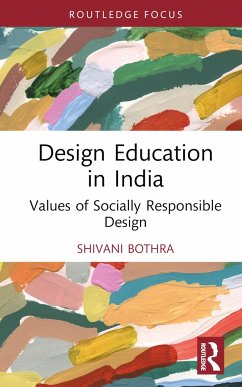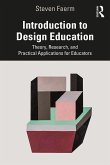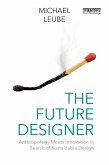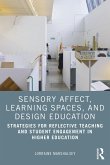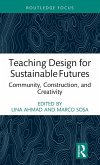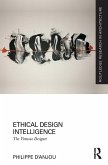This book traces developments in design education in India and shows the continuing impact of the Bauhaus School of design education, which formed the basis of the National Institute of Design. It presents the findings of the author's research and experiential learning as a design educator over a 25-year period.
This book argues that as the effects of climate change and the exploitation of natural and human resources become more pervasive, it has become increasingly important to ensure that the values of social responsibility are instilled into the design students who will become future practitioners. This book offers an alternative model of understanding regarding the ecosystem of design and sustainable design education. Going beyond description and analysis, it includes three case studies of adoptable design curricula created by the author, with student responses to the programmes to provide first-hand insights into their impact. Research findings are based on detailed interviews with contemporary faculty members, all experts in the various design disciplines, along with an in-depth survey of existing design programmes in India.
Design Education in India encourages a paradigm shift in thinking about the environment, spaces and places. It offers a unique perspective on the status of design education in an important and fast-growing economy and will be a useful read for design educators and researchers in varied disciplines.
This book argues that as the effects of climate change and the exploitation of natural and human resources become more pervasive, it has become increasingly important to ensure that the values of social responsibility are instilled into the design students who will become future practitioners. This book offers an alternative model of understanding regarding the ecosystem of design and sustainable design education. Going beyond description and analysis, it includes three case studies of adoptable design curricula created by the author, with student responses to the programmes to provide first-hand insights into their impact. Research findings are based on detailed interviews with contemporary faculty members, all experts in the various design disciplines, along with an in-depth survey of existing design programmes in India.
Design Education in India encourages a paradigm shift in thinking about the environment, spaces and places. It offers a unique perspective on the status of design education in an important and fast-growing economy and will be a useful read for design educators and researchers in varied disciplines.
"To echo Nelson Mandela, 'Education is the most powerful weapon which you can use to change the world.' Sanjeev was a teacher that changed the way students imagined the world in them and them in the world. He inspired us not just to be better designers but also to be the best version of ourselves. He held our hand, extended his mentorship beyond the classroom, and inspired us by setting examples through his exemplary work. Thank you, Sanjeev, for believing in us and your unwavering commitment to creating possibilities."
Swati Sharma, former student, Batch 2001, Indian Institute of Crafts and Design, Jaipur, India
"This book is the story of [Sanjeev Bothra's] design and life journey. On first read, it seems an uncharted journey, where Sanjeev, the traveller, has let events, experiences and experiments define his philosophical and ideological sub-text. But as I read on and within, I seem to understand that this journey has a clear charter. The most significant commandment learnt... the means and the process are more significant than the end, and the sum of parts is greater than the whole! In the finite world we live in, with depleting resources and unscrupulous gain-seeking, 'Design thinking' needs a realignment, a re-purposing. This thesis turned book of Sanjeev's, moves towards this 'design rethink', hopefully moving readers to a gentle reawakening."
Sangita Shroff, Dean & Director, Institute of Design, Nirma University, Ahmedabad, India
Swati Sharma, former student, Batch 2001, Indian Institute of Crafts and Design, Jaipur, India
"This book is the story of [Sanjeev Bothra's] design and life journey. On first read, it seems an uncharted journey, where Sanjeev, the traveller, has let events, experiences and experiments define his philosophical and ideological sub-text. But as I read on and within, I seem to understand that this journey has a clear charter. The most significant commandment learnt... the means and the process are more significant than the end, and the sum of parts is greater than the whole! In the finite world we live in, with depleting resources and unscrupulous gain-seeking, 'Design thinking' needs a realignment, a re-purposing. This thesis turned book of Sanjeev's, moves towards this 'design rethink', hopefully moving readers to a gentle reawakening."
Sangita Shroff, Dean & Director, Institute of Design, Nirma University, Ahmedabad, India

